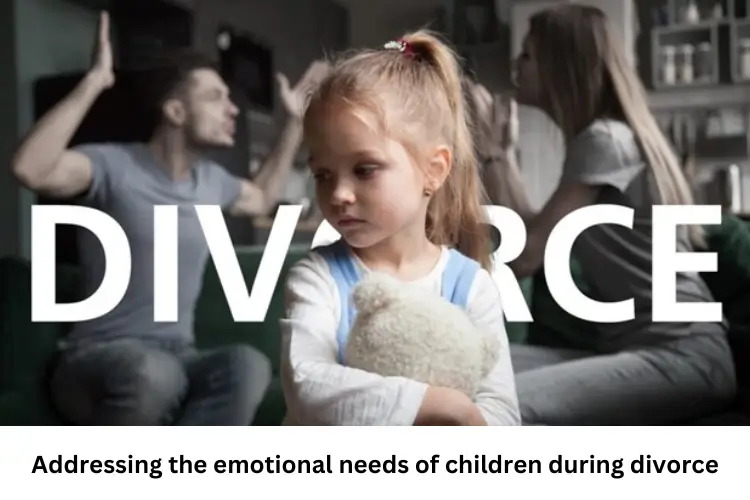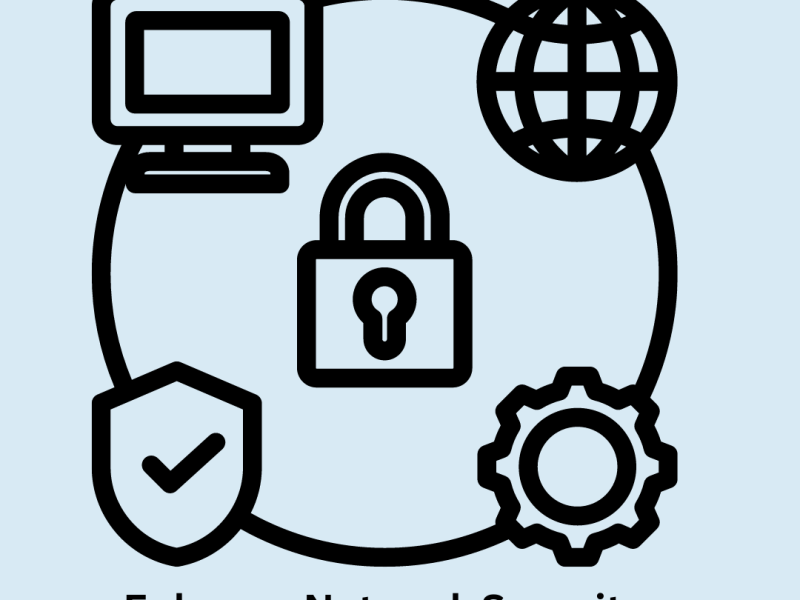“Children begin by loving their parents; after a time, they judge them; rarely, if ever, do they forgive them.”
Talk openly and honestly with your child about the divorce
To wit:
- Explain to your child, according to his or her age, why you and your spouse decided to divorce. Avoid blaming each other and unnecessary details;
- Make sure that your child understands what divorce means by using words that he or she can understand. Avoid complicated legal terms or explanations that may further confuse him or her;
- Let your child know that it is okay to ask questions about their parents’ divorce. Create a safe space where she feels comfortable expressing her concerns or seeking clarification;
- Acknowledge and support any emotions your child may be feeling, such as sadness, anger, confusion, or fear. Reassure him or her that these feelings are normal and natural under the circumstances;
- Emphasize that, despite the changes that are occurring in the family through the divorce process, both parents still love her unconditionally. Reassure her that her well-being remains a priority for them.
By sharing open and truthful conversations with your child using the Harris County divorce forms PDF, you can support them in better managing this challenging period while addressing their emotional requirements.
Reassure your child that the divorce is not his or her fault
To wit:
- Emphasize your unconditional love for him or her and reassure him or her that the divorce is not a reflection of his or her worth or behavior. Reiterate that both parents still love her deeply and that the decision to divorce is not due to her actions;
- Explain to your child, in an age-appropriate manner, that the decision to separate was made by you and your spouse based on factors beyond their control. Help him/her understand that relationships between adults can be difficult and that sometimes people grow apart;
- Create an environment where your child feels comfortable expressing her thoughts about her feelings and fear of guilt about her parent’s divorce. Let her know that it is normal for children to feel this way, but emphasize that it is inappropriate and unjustified;
- Acknowledge any feelings of guilt or self-blame that your child expresses without dismissing or minimizing them. Offer reassurance and support to help your child deal with these difficult emotions.
By reassuring your child that the divorce is not their fault, you can help alleviate unnecessary emotional stress during this difficult time.
Create a consistent daily routine to provide stability and predictability for your child
To do this:
- Create a predictable daily routine for your child by establishing a regular visitation or custody schedule. This will give your child a sense of stability and predictability during the divorce process;
- Communicate with your ex-partner to ensure that the daily routine, rules, and expectations are properly agreed upon. This will help minimize confusion and ensure that your child has a smooth transition when moving from one home to another;
- Identify key activities, such as mealtimes, bedtimes, schoolwork, extracurricular activities, and family traditions that can be maintained despite the changes caused by the divorce. Consistency in these areas will help your child feel secure;
- Maintain an open dialog with your child about any adjustments or changes in his or her daily routine due to the divorce process. Explain why certain changes may be necessary and reassure your child that he or she can rely on you to provide stability in daily life.
By creating a consistent daily routine during the divorce, you can give your child a sense of stability and predictability, which will have a positive impact on their emotional well-being.
Encourage your child to express their feelings and emotions
To do this:
- Let your child know that it is okay to express his or her feelings and emotions about the divorce process. Provide a supportive environment in which he or she feels comfortable sharing his or her thoughts and not being judged or criticized;
- when your child talks about his or her emotions, give him or her your full attention. Practice active listening by maintaining eye contact, nodding to indicate understanding, and reflecting on what she has shared to show that you value and approve of her feelings;
- suggest books, articles, or videos that talk about divorce and its emotional impact on children. This will help your child better understand his or her own feelings and realize that he or she is not alone in experiencing these emotions;
- if necessary, seek professional help from family therapy. A qualified therapist can help you and your child cope with the emotional challenges of the divorce process.
By encouraging your child to express his or her feelings and emotions related to the divorce process, you are creating an opportunity for your child to live through his or her new experience in a healthy way. This open communication will help build resilience and healing during this difficult time.
Seek professional support for your child, such as a psychologist or therapist
To do this:
- engage a therapist who specializes in working with children and families to provide a safe space for your child to express his or her emotions, fears, and concerns related to the divorce process;
- family therapy will be useful for all participants in the divorce process. It provides an opportunity for open communication, understanding different points of view, and finding ways to overcome difficulties as a whole;
- find out if your child’s school has a psychological counseling service. School psychologists are trained professionals who can offer support during this difficult time and help your child cope with any emotional difficulties they may be experiencing;
- attend therapy sessions with your child or take an active part in family therapy sessions. This will show your commitment to her well-being and will also give you the opportunity to gain insight into her emotions and needs during the divorce process.
By seeking professional support, such as individual or family therapy, you are providing your child with a valuable resource to help her cope with the emotional challenges of divorce. Therapy offers tools and coping mechanisms that promote healing, resilience, and healthy adjustment.
Avoid making negative or derogatory comments about your ex-partner in front of your child
Specifically:
- Be careful about the words you use when discussing your ex-partner in front of your child. Avoid negative or disparaging comments, as they can create a hostile atmosphere and cause unnecessary emotional stress on your child;
- Instead of focusing on negative qualities or past disagreements with your ex-partner, try to emphasize his/her positive traits or aspects that your child can appreciate. This will contribute to a healthier perception of both parents;
- Teach your child to treat both parents with respect and to refrain from making negative comments about either parent. Emphasize that while you may have disagreements, it is important that everyone is treated fairly and with respect;
- If you are having difficulty controlling negative emotions toward your ex-spouse, seek counseling or join support groups specifically designed for people going through divorce. These resources can help you deal with residual anger or resentment in a healthier way.
By avoiding negative or derogatory comments about your ex-partner in front of your child, you will foster an atmosphere of respect and minimize potential emotional harm to your child during the divorce process. Remember that setting aside personal grudges is crucial to your child’s well-being.
Encourage healthy coping mechanisms
For example:
- Encourage your child to engage in regular exercise or physical activity as a healthy outlet for their emotions. This can include activities such as sports, dancing, cycling, or even going for a walk together;
- Provide opportunities for creative expression through art, music, writing, or other hobbies that your child enjoys. This approach will be one of the ways to process and control emotions during the divorce process;
- If you notice that your child is having difficulty with emotional well-being during the divorce process, seek professional help from psychotherapists or counselors who specialize in working with children and families. They will provide additional guidance and support tailored to your child’s needs;
- Show your child how to effectively cope with stress and emotions by demonstrating healthy coping strategies through your own example. By modeling positive behaviors such as taking breaks when needed, taking care of yourself, and expressing emotions constructively, you will contribute to the co-parenting success and help your child develop valuable life skills.
Maintain a positive relationship with your ex-partner for the sake of your child
To wit:
- Maintain open and respectful communication with your ex-spouse to ensure a positive relationship between you and your parents. This includes discussing important decisions regarding your child, sharing relevant information, and addressing any concerns that may arise in the future;
- Strive for consistency between both families by establishing common rules, expectations, and discipline strategies. This will provide stability for your child as he or she navigates the changes brought about by the divorce;
- Protect your child from any conflicts or disagreements you may have with your former partner. Avoid negative statements about him or her in the presence of the child and do not use him or her as a mediator in adult issues;
- Support and encourage regular visits or parenting time with the other parent. Recognize the importance of maintaining a strong bond between each parent and their child;
- If difficulties arise in maintaining a positive relationship between parents, seek help from a mediator, therapist, or counselor who specializes in helping divorced parents overcome these issues.
By prioritizing a healthy relationship with your ex-partner, you can create an environment that is conducive to successful co-parenting, which is crucial to supporting your child’s emotional needs during the divorce process.
Keep the lines of communication open between both parents
To wit:
- Keep lines of communication open with the other parent to ensure consistency and support for your child during the divorce process. This can be through phone calls, emails, or face-to-face meetings to discuss important issues related to your child’s well-being;
- keep each other informed of any changes or updates to your child’s schedule, school or extracurricular activities, doctor’s appointments, etc. Sharing this information helps both parents stay engaged in the process and ensures that your child receives ongoing care and support from both sides;
- Involve both parents in making decisions about important aspects of your child’s life, such as education, health care, disciplinary strategies, and major life events. By working together, you demonstrate unity and a shared commitment to prioritizing what is best for your child;
- Maintain a respectful tone when discussing sensitive topics with your ex-partner. Avoid conflicts and negative statements that may affect the emotional state of both you and your child.
By keeping the lines of communication open between both parents during the divorce process, you create an environment that will foster consistency and support for your child’s emotional needs.
Prioritize self-care to support emotional well-being
Do this:
- Prioritize self-care to ensure your own emotional well-being. This will allow you to be more attentive to your child’s needs during the divorce process;
- Reach out to friends, family, or a therapist who can provide you with advice and emotional support as you navigate the challenges of co-parenting during a divorce. Remember that seeking help is not a sign of weakness but rather an act of strength;
- Engage in activities that help reduce stress, such as exercise, meditation, journaling, or a hobby that brings you joy. By managing your own stress levels, you will be better prepared to cope successfully with the demands of co-parenting;
- Set clear boundaries with your ex-spouse to protect your emotional well-being. This will help ensure that communication is limited to child-rearing-related issues and that discussions or arguments about past conflicts are avoided;
- Show your child positive ways to manage emotions and resolve conflicts. By showing how you take care of yourself, you are setting an example for your child of how they can manage their own emotions during this difficult time.
By prioritizing self-care and maintaining your emotional well-being, you set yourself up for successful co-parenting during the divorce process. Your positive state of mind directly impacts your child’s experience and helps create a healthier environment for them to thrive.




